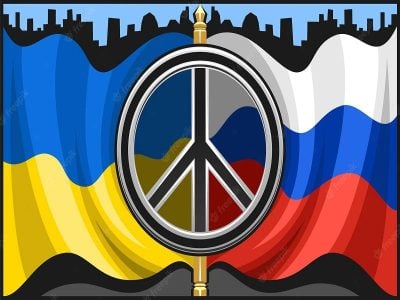Western Powers ‘Blocked’ Ceasefire Early in Ukraine War: Former Israeli PM Bennett
Naftali Bennett, the Prime Minister of Israel towards the start of Russia’s full-scale invasion of Ukraine last year, says the West “blocked” a ceasefire he was helping to broker early in the war.

All Global Research articles can be read in 51 languages by activating the Translate Website button below the author’s name (desktop version)
To receive Global Research’s Daily Newsletter (selected articles), click here.
Follow us on Instagram and Twitter and subscribe to our Telegram Channel. Feel free to repost and share widely Global Research articles.
***
Bennett, who was prime minister and then alternate prime minister in Israel during a confusing period of coalition politics prior to the return of Benjamin Netanyahu as head of government in December, said that “there was a good chance of reaching a ceasefire” before the Western powers “curbed” negotiations in a wide-ranging interview uploaded to YouTube.
Israel is one of a number of states traditionally seen as being aligned with the West, along with the likes of India and Turkey, which have played little or no part in efforts to support Ukraine militarily or engage in the sanctions war with Russia, with Bennett explaining that while “the Americans expect… that we all rally for Ukraine” this would not necessarily have been in Israel’s interests.
By way of example, Bennett cited Israeli interests in Syria, where “once or twice a week we attack the Iranian presence… Russia, the superpower, has the S-300 there, and if they press the button Israeli pilots will fall.”
“Who will save them? Biden? Zelensky? It [would have been] my problem,” he said, having earlier suggested that he had “made sure that Israel would have free rein in Syria” during his first in-person meeting with President Vladimir Putin — an ally of the Syrian and Iranian governments — prior the full-scale invasion of Ukraine.
“[M]y focus is on Israel’s interests… My people,” Bennett said, explaining why he chose to position himself as a more non-aligned mediator between Putin and Zelensky after the outbreak of hostilities — and claiming that, without Western interference, his efforts might have succeeded.
"I asked 'what's up with this? Are you planning to kill Zelensky?' He said 'I won't kill Zelensky.' I then said to him 'I have to understand that you're giving me your word that you won't kill Zelensky.' He said 'I'm not going to kill Zelensky.'" https://t.co/zIOz6ndFag
— Breitbart London (@BreitbartLondon) February 5, 2023
Perhaps one of the more embarrassing claims made by Bennett with respect to the early period of the war is that he personally secured a guarantee from Putin that he would not kill President Volodymyr Zelensky, with the Ukrainian leader allegedly “in a secret bunker” before this promise was made.
Only after Bennett informed Zelensky of this gentleman’s agreement “by WhatsApp or Telegram”, the Israeli claimed, did the Ukrainian “[go] to his office and [film] himself there on his phone” saying “I’m not afraid.”
Of greater geopolitical consequence, however, is Bennett’s account of his efforts to mediate a ceasefire between the two sides, which saw him fly into Russia and then Germany — despite having previously “made a point of never setting foot in Germany because of the Holocaust” — in search of a compromise agreement.
Bennett said that he had approached U.S. President Joe Biden, U.S. Secretary of State Antony Blinken, and U.S. National Security Advisor Jake Sullivan before becoming “a pipeline” for negotiations between Putin and Zelensky, and that everything was “fully coordinated” with Biden, President Emmanuel Macron of France, then-Prime Minister Boris Johnson of Britain, and Chancellor Olaf Scholz of Germany — who was said to be “very distressed” by the impact of the war on his country’s supply of Russian gas.
Click here to read the full article on Breitbart.
*
Note to readers: Please click the share buttons above. Follow us on Instagram and Twitter and subscribe to our Telegram Channel. Feel free to repost and share widely Global Research articles.
Featured image is from Andrew Korybko’s Newsletter

